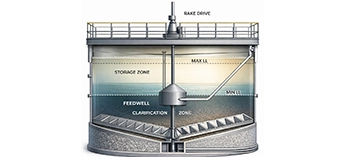Finnish-based Metsä Group is very much a company on the move with a firm vision for the future.
Jointly owned by more than 90,000 Finnish forest holders, the company boasts 9,500 employees in 34 production plants and has an annual turnover of between Euro 6 and 7 billion.
Metsä Group is the most active investor in the forest sector in the EU. Since 2015, investments have totalled Euro 7 billion.
The company is active in five business areas: wood supply and forest services, wood products, pulp and paperboards, tissue and greaseproof papers. It had been a key graphic paper producer but it exited this sector after steep market declines. Its last copy paper machines were shut down in its Husum, Sweden, mill in 2016
This eventually opened the door to seek out new opportunities. In 2018, Metsä Spring was established because the company wanted to strengthen the Metsä Group’s business ecosystem in the long-term with new opportunities. During the Pulp and Beyond conference held in Helsinki in April, a group of editors had the opportunity to meet with the leaders of Metsä Spring who discussed some recent developments.

Niklas von Weymarn
CEO, Metsä SpringNiklas von Weymarn, CEO, Metsä Spring, said the company has nine new product development projects on the go: six investments in Nordic start-up companies, and three internal start-ups.
One development project at the top of Metsä Spring’s list is its packaging innovation: Muoto™. This is a wood cellulose fiber-based alternative to plastic packaging. The technology converts wet wood pulp into 3-dimensional packaging. Possible uses include takeaway, berry, tray and combo packaging.

The project is in a pre-engineering phase with the hope of building a commercial-scale facility at the Metsä Group Rauma mill site. A demo plant is now in operation at the Metsä Group mill site in Äänekoski. The company hopes to make the investment decision in 2025. Jarkko Tuominen, VP Projects, said about Euro 20 million has already been invested in the demo plant phase.
 Jarkko Tuominen
Jarkko Tuominen
VP Projects, Metsä SpringTuominen explained why the company thought Muoto was a feasible project.
- The need for new packaging solutions;
- Sustainability: Muoto is recyclable;
- Upcoming European regulations dealing with packaging. The Muoto catalogue will be finalized when the final version of the EU Packaging and Packaging Waste Regulation has been published;
- The main purpose of the Metsä Group is to add value to its current end products.
Tuominen then discussed some of the features of Muoto. “We can do layering technology in the product so we can adjust properties in each layer. It will also provide a rigid structure while maintaining lightness. We can tailor the needs to customer specs through additional treatments.”
In the beginning, Tuominen added that the company would like to focus on applications where it can grow quickly such as staples and commodities. Although not yet commercialized, he said feedback has been good from potential clients.
Äänekoski’s bioproduct development goals aim high
The editors then had the opportunity to tour Metsä Group’s bioproduct mill in Äänekoski. Although there have been mills on the site for more than a century, the latest iteration started up in 2017, although it seems to have been in a state of constant improvement since.
The new bioproduct mill is part of Metsä Fibre, one of the Metsä Group’s five business divisions. The single line mill can now produce 1.3 million tonnes/yr of bleached kraft pulp, softwood and hardwood. About 70% is pine, the rest birch. Close to 70% of the pulp is exported.

Generally, the mill uses a three-stage ECF bleaching process. The mill also features the first totally automated pulp distribution center with a dedicated train service to the pulp export terminal in the port of Helsinki.
What is a bioproduct mill? Janne Rantanen, newly-appointed mill manager, explained that the principle of a bioproduct mill is to continuously convert side streams derived from pulp production into bioproducts that offer higher value than before.
The mill’s goal is to achieve 100% use of its side streams by 2030.
The bioproducts made at the mill include conventional products such as tall oil and turpentine. However, it also produces its own sulfuric acid from the malodorous gases. Other products include biogas through fermentation, biopellets from the fermentation of leftover material, product gas through bark gasification as well as lime and ash for fertilizer.
Bioproducts now account for about 20% of the mill’s revenues and that figure is growing. For example, in 2024, Veolia’s plant purifying biomethanol will be in operation.
It should be noted that the mill uses no fossil fuels in its processes. As previously stated, it produces product gas made mainly from birch bark, which fuels the lime kiln. The mill is electrically self-sufficient, producing 1.8 TW hours or 240% of its needs. The rest is sold to the national grid.
Rantanen also said the mill only produces about 15 m3 of waste water per tonne of pulp, a figure much lower than conventional kraft pulp mills.
There are numerous new concepts already in operation or under development at the site including the aforementioned Muoto demo plant. There is also a demo plant for Metsä Group’s textile fiber made from the bioproduct mill’s softwood pulp, Kuura.

Neighboring Nouryon produces carboxymethyl cellulose (CMC), a bio-based, water-soluble polymer made from pulp.
Finally, in conjunction with Andritz and Dow, a lignin refining demo plant will be built. It should be completed by 2025 and be able to produce 2 tonnes/day of a novel lignin product that will be developed as a high-performance bio-dispersant plasticizer for concrete and gypsum applications.

About Metsä Group
Metsä Group is a Finnish forest industry group present in about 30 countries. Metsä Group's core businesses are tissue and cooking papers, board, pulp, wood products as well as wood trade and forestry services
About Metsä Spring
Metsä Spring is the innovation arm of Metsä Group, focusing on sustainable forest-based products. It develops new technologies and business ideas, aiming to enhance sustainability and efficiency in the forest industry. Metsä Spring collaborates with startups and research institutions to drive forward-thinking, eco-friendly initiatives.

Graeme Rodden has covered the pulp and paper industry for more than 40 years, including serving as editor of several well-known paper industry magazines.
























































